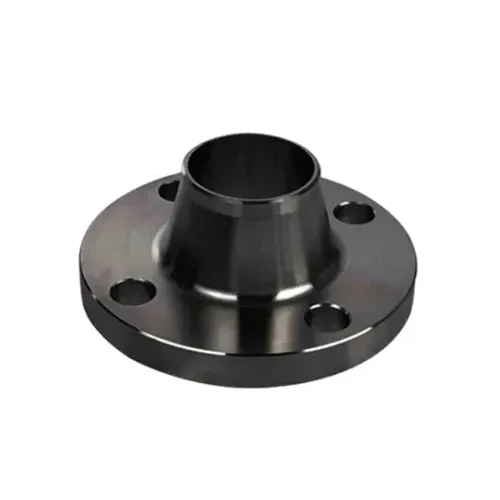-
Cangzhou Yulong Steel Co., Ltd.
-
Phone:
+86 13303177267 -
Email:
admin@ylsteelfittings.com
- English
- Arabic
- Italian
- Spanish
- Portuguese
- German
- kazakh
- Persian
- Greek
- French
- Russian
- Polish
- Thai
- Indonesian
- Vietnamese
- Zulu
- Korean
- Uzbek
- Hindi
- Serbian
- Malay
- Ukrainian
- Gujarati
- Haitian Creole
- hausa
- hawaiian
- Hebrew
- Miao
- Hungarian
- Icelandic
- igbo
- irish
- Japanese
- Javanese
- Kannada
- Khmer
- Rwandese
- Afrikaans
- Albanian
- Amharic
- Armenian
- Azerbaijani
- Basque
- Belarusian
- Bengali
- Bosnian
- Bulgarian
- Catalan
- Cebuano
- China
- China (Taiwan)
- Corsican
- Croatian
- Czech
- Danish
- Esperanto
- Estonian
- Finnish
- Frisian
- Galician
- Georgian
- Kurdish
- Kyrgyz
- Lao
- Latin
- Latvian
- Lithuanian
- Luxembourgish
- Macedonian
- Malgashi
- Malayalam
- Maltese
- Maori
- Marathi
- Mongolian
- Myanmar
- Nepali
- Norwegian
- Norwegian
- Occitan
- Pashto
- Dutch
- Punjabi
- Romanian
- Samoan
- Scottish Gaelic
- Sesotho
- Shona
- Sindhi
- Sinhala
- Slovak
- Slovenian
- Somali
- Sundanese
- Swahili
- Swedish
- Tagalog
- Tajik
- Tamil
- Tatar
- Telugu
- Turkish
- Turkmen
- Urdu
- Uighur
- Welsh
- Bantu
- Yiddish
- Yoruba

aug . 21, 2024 13:53 Back to list
Exploring the Benefits and Applications of Weldable Pipe in Construction and Industry
Understanding Weldable Pipe Importance, Types, and Applications
Weldable pipe plays a crucial role in various industries, including construction, manufacturing, oil and gas, and automotive sectors. The term “weldable pipe” refers to pipes designed specifically for welding processes, allowing for the creation of strong, durable joints. This article explores the importance of weldable pipes, their types, and their applications.
Importance of Weldable Pipes
The ability to weld pipes together is essential for constructing and maintaining effective piping systems. Weldable pipes provide several benefits, including
1. Strength and Durability Properly welded joints can enhance the overall strength and longevity of piping systems. This is particularly important in sectors where pipes carry high-pressure fluids, chemicals, or gases.
2. Versatility Weldable pipes can be used in various applications, from transporting water and sewage to carrying hazardous materials. Their adaptability makes them a preferred choice across different industries.
3. Cost-Effectiveness Welding allows for the efficient joining of pipe sections, minimizing material waste and reducing installation costs. Compared to mechanical fittings or flanges, welded joints can lead to significant savings over time.
4. Leak Prevention The seamless nature of welds can help reduce the risk of leaks, which is critical in applications involving volatile substances. A leak-free system contributes to safety and prevents environmental contamination.
Types of Weldable Pipes
Weldable pipes come in various materials and configurations, each suited for specific applications. Some common types include
1. Carbon Steel Pipes These are widely used in industries due to their strength and heat resistance. They are often manufactured to various standards and can be welded using multiple techniques, including MIG, TIG, and stick welding.
weldable pipe

2. Stainless Steel Pipes Known for their corrosion resistance, stainless steel pipes are ideal for food processing, chemical transportation, and pharmaceutical applications. Welding stainless steel requires precise techniques to avoid contamination and ensure the integrity of the weld.
3. Alloy Steel Pipes Alloy steel pipes incorporate elements like chromium and molybdenum that enhance their strength and toughness. These pipes are commonly used in high-pressure and high-temperature applications, such as power plants and oil refineries.
4. PVC and HDPE Pipes While not traditionally welded in the same manner as metal pipes, these plastic pipes can be joined using fusion welding techniques. This is popular in water supply and sewage systems.
Applications of Weldable Pipes
Weldable pipes are utilized in a myriad of industries due to their robustness and reliability. Key applications include
1. Oil and Gas Industry Weldable pipes are vital for transporting crude oil, natural gas, and associated products. The ability to withstand extreme conditions and pressure is crucial in offshore and onshore drilling operations.
2. Construction In construction, weldable pipes are used for structural purposes, including scaffolding and frames. They are also essential in HVAC systems, where ductwork must be securely connected.
3. Water Supply Municipal water systems rely on weldable pipes for efficient and safe water distribution. The seamless connections help prevent leaks, thereby conserving water and maintaining system integrity.
4. Automotive Applications Many vehicles use weldable pipes for exhaust systems and fuel lines. The ability to achieve high-quality welds ensures that these components can withstand vibrations, high temperatures, and corrosive environments.
Conclusion
Weldable pipes are fundamental to the functionality and safety of various systems across industries. Their strength, versatility, cost-effectiveness, and ability to prevent leaks make them an indispensable component in modern applications. Understanding the characteristics and applications of weldable pipes can help industries make informed decisions in their projects, ensuring the durability and efficiency of their piping systems. As technological advancements continue to evolve, the methods of welding and the materials used for weldable pipes will likely improve, increasing their applications and overall effectiveness in future endeavors.
Latest news
-
ANSI 150P SS304 SO FLANGE
NewsFeb.14,2025
-
ASTM A333GR6 STEEL PIPE
NewsJan.20,2025
-
ANSI B16.5 WELDING NECK FLANGE
NewsJan.15,2026
-
ANSI B16.5 SLIP-ON FLANGE
NewsApr.19,2024
-
SABS 1123 FLANGE
NewsJan.15,2025
-
DIN86044 PLATE FLANGE
NewsApr.19,2024
-
DIN2527 BLIND FLANGE
NewsApr.12,2024
-
JIS B2311 Butt-Welding Fittings LR/SR 45°/90° /180°Seamless/Weld
NewsApr.23,2024











